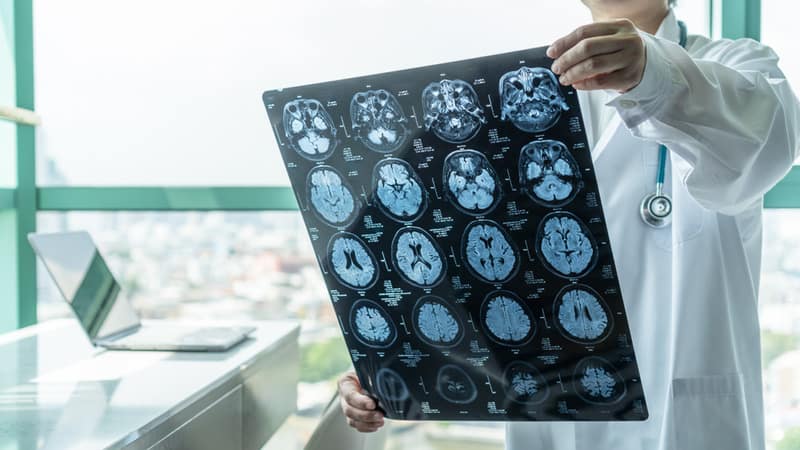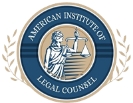It is no longer a surprise that traumatic brain injuries are among the significant causes of death in the United States. Thousands die from a brain injury each day, and those who survive either suffer a disability or can no longer live everyday life. If you or your close family or friend suffer from traumatic brain injury, the experience is undoubtedly traumatizing and devastating. There is no one appropriate word to describe the horrible consequences, especially if you are a victim of another person’s negligence. In cases like this, an LA traumatic brain injury lawyer works hand-in-hand with you to find the deserved rainbow after the rain.
Oktanyan Der-Grigorian Law Group understands the complexity of traumatic brain injury cases. At the same time, the pain and suffering the victim and the families encounter during the process. They open their doors to help and ensure making things easier to seek justice deserved by working the hardest to achieve the compensation needed to recover from the harsh reality as the accident’s consequence. LA traumatic brain injury attorney knows what it is like in filing traumatic brain injury cases. Without them, it is impossible to find the light at the end of the tunnel.
5 Common Misconceptions About Traumatic Brain Injury Cases
Several traumatic brain injury victims are apprehensive in filing traumatic brain injury claims due to a lack of knowledge. It is understandable as not all people are well-aware of how these claims work and what is needed to ensure a successful case. Thus, an LA traumatic brain injury lawyer explains the truth behind the common misconceptions regarding traumatic brain injury cases. Knowing the right information is relevant as you encounter several aspects of traumatic brain injury claims along the way. It is your right to know, so we’ll lay out these important facts for you.
MYTH #1: If there is no loss of consciousness, it is not considered a traumatic brain injury.
Most people think that if the victim did not experience loss of consciousness, it is not a traumatic brain injury.
FACT: Traumatic brain injuries are classified into three types: mild, moderate, and severe. Symptoms vary for each classification; thus, a victim may sustain a mild traumatic brain injury without losing consciousness as it affects the brain temporarily. However, the patient may show confusion or disorientation. Meanwhile, moderate to severe traumatic brain injuries’ symptoms include loss of consciousness at varying times due to brain swelling, bleeding, or damage. Therefore, loss of consciousness should not be the sole basis of traumatic brain injury as other symptoms may deem appropriate, depending on the severity of the case.
MYTH #2: If there is no evident bleeding, there is no traumatic brain injury.
Another common misconception connects traumatic brain injury to observed bleeding.
FACT: Traumatic brain injuries may either be closed or open. An open brain injury refers to an instance of breaking the skull, penetrating a particular object. In contrast, a closed head injury is when there is no active bleeding and penetration, and the skull is not damaged. Despite the absence of bleeding, there is still a possibility of internal bleeding or injuries. These findings come in an MRI or CT scan result. Therefore, it is not right to associate evident bleeding with traumatic brain injury.
MYTH #3: If there are no signs of trauma, there is no traumatic brain injury.
Only those who have apparent trauma can be susceptible to traumatic brain injury.
FACT: Not all effects of traumatic brain injuries are immediately evident. Most long-term effects of traumatic brain injuries only show a few weeks or even months after the accident. These effects are most commonly overlooked as normal people experience these problems, except lasting brain injury consequences. Victims with mild to severe brain injuries experience slight to permanent changes in personality, decision-making, handling emotions, including physical symptoms such as frequent headaches, dizziness, and vomiting.
MYTH #4: The recovery for traumatic brain injury victims is steady.
Once victims start to recover, it is noted to last until full recovery is reached.
FACT: There is no such thing as a steady recovery in traumatic brain injuries. A rough journey is expected throughout the recovery process. Progress usually comes in forward and backward motion. With the brain being badly injured, several aspects come with the recovery. These include physical, emotional, mental, even financial well-being. Moreover, traumatic brain injury victims should be given false-hope as it will not benefit them in the long run. Therefore, an LA traumatic brain injury lawyer emphasizes the need for a strong support system during one of the most challenging parts of the recovery process.
MYTH #5: Recovery is only for two years.
After two years, the traumatic brain injury victim will be fully-recovered.
FACT: Truth be told, the first two years of the victim’s recovery is critical. It determines the course of the progress, and most of the recovery does occur within this period. However, it should not just be limited to these two years. Some victims spend the rest of their lives recovering from sustained traumatic brain injuries. Recovery is a case to case basis, and it should not be generalized. What works for one victim may not necessarily be the same as another.
How Can The Best LA Traumatic Brain Injury Attorney Help?
Oktanyan Der-Grigorian Law Group has been successfully helping traumatic brain injury victims since it opened its doors in 2011. ODG Law Group commits to providing quality legal service, especially to those who suffered brain injuries due to another person’s negligence. With the LA traumatic brain injury lawyer’s help, traumatic brain injury victims can be legally guided towards the fight of receiving the well-deserved compensation. The compensation includes the loss of income, past and future medical bills, rehabilitation, therapy expenses, pain, and suffering. It is not a comfortable journey, yet ODG Law Group treats you like a family and provides the legal, mental, and emotional support to get you by. Contact (818) 975-3080 today!




